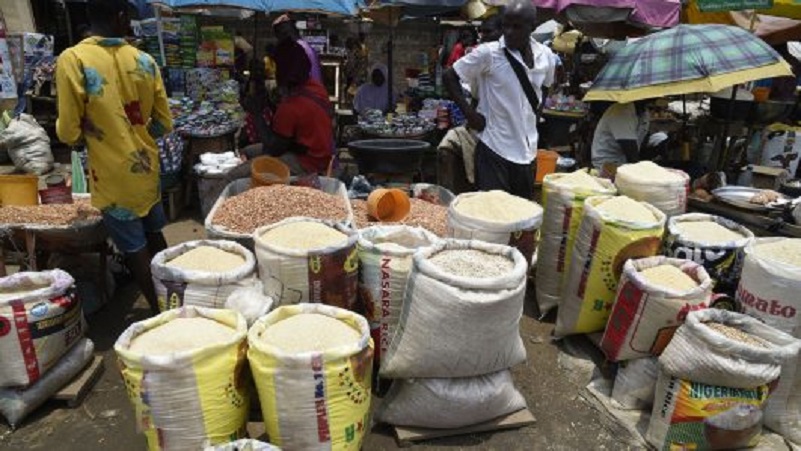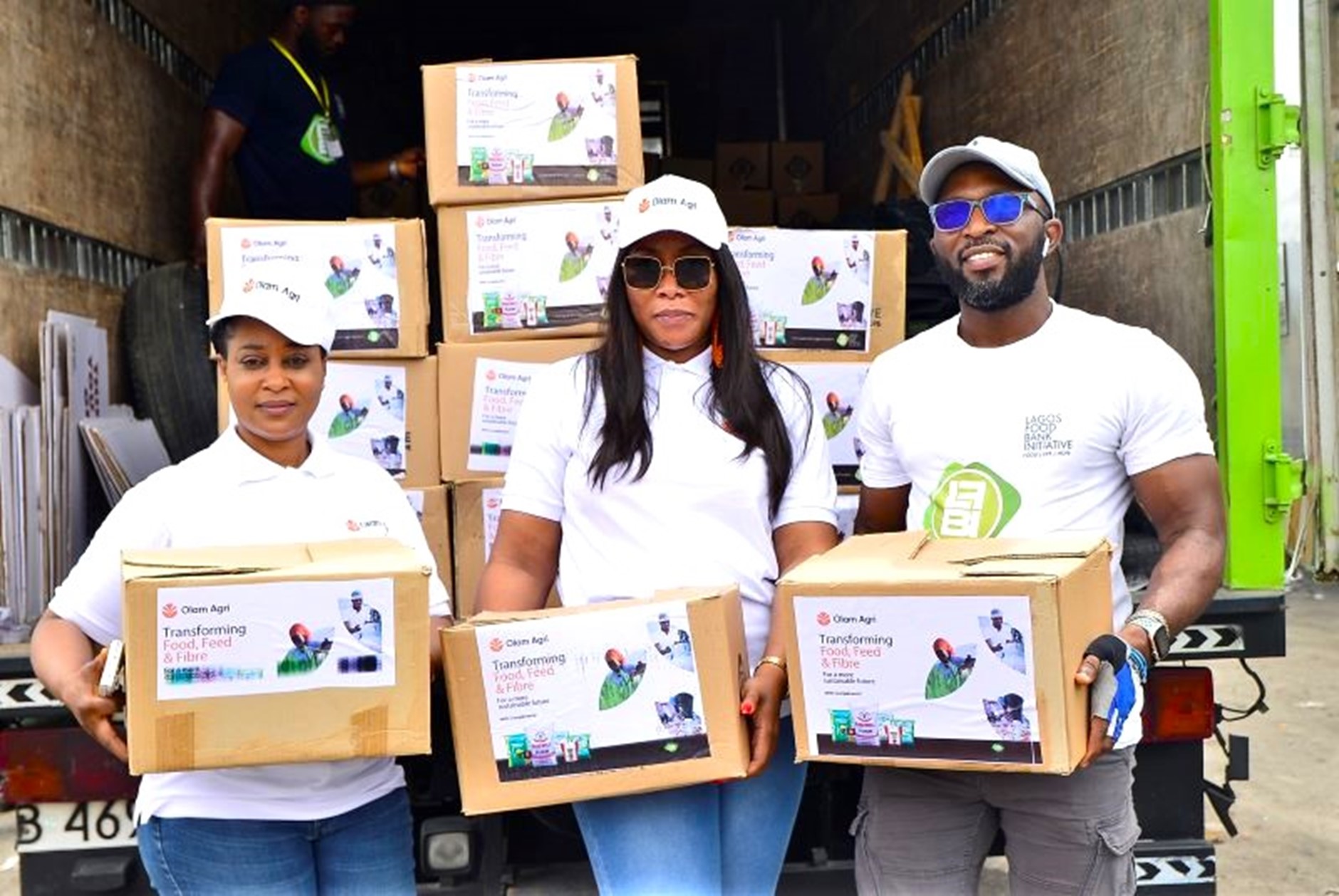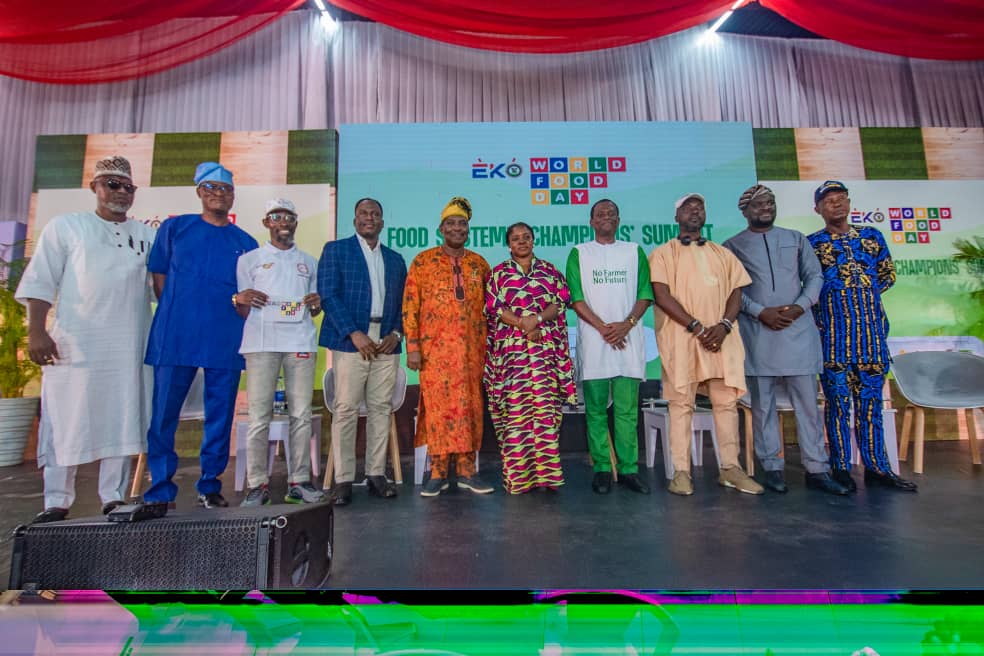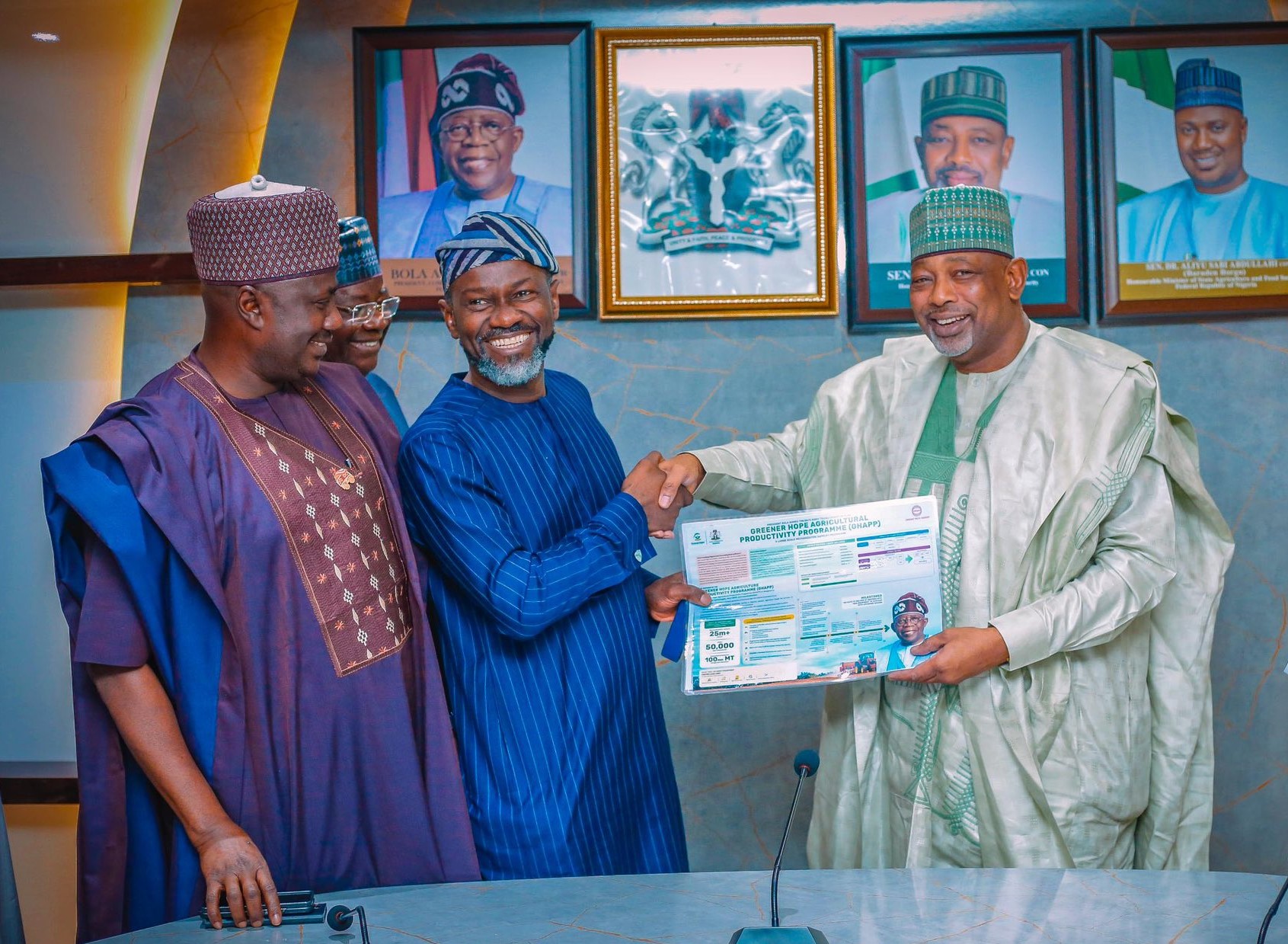Economy
Experts Seek Urgent Action on Food Security Threat in West Africa

By Modupe Gbadeyanka
Governments of the West African nations have been urged to quickly take actions that would address food security threat in the region.
According to a report titled ‘The Cost of Ocean Destruction,’ which was released to celebrate the World Fisheries Day, vessels arrested for illegally fishing in West African waters are still carrying on with business as usual.
The report, released by Greenpeace Africa, detailed how West African fishermen and communities continue to suffer from the consequences of overfishing and illegal fishing in this region and it provides specific recommendations for governments on how to solve the crisis.
Greenpeace appealed to West African governments as well as nations fishing in, or importing seafood from the region, to stand together to protect millions of Africans against the unceasing onslaught of industrial fishing fleets.
Greenpeace is also demanding that authorities provide follow-up information on fishing vessels and crews that were arrested during a joint patrol by Greenpeace and African fisheries inspectors last spring.
According to the project leader in Greenpeace Netherlands, Pavel Klinckhamers, “The current situation in West Africa is a result of decades of overfishing and inaction, but it is also a result of commitments from West African governments and foreign fishing nations, like China, South Korea and the EU, that were simply never translated into reality.
“Coastal communities are the ones paying the price and they cannot wait any longer. African states and foreign fishing nations in the region have to change course and put in place the policies that these communities need in order to survive.”
In only 20 days, Greenpeace and fisheries inspectors from Guinea, Guinea Bissau, Sierra Leone and Senegal came across 17 vessels contravening applicable rules, while 11 of these vessels were arrested for infractions which included involvement in illegal transshipment, fishing in breach of their license conditions, using illegal nets and shark finning.
However, only six months later, all 17 vessels are still licensed to fish in West African waters, and in most cases, local authorities are not responding to requests from Greenpeace to clarify what legal steps were taken after the arrests.
Chinese authorities have ordered provincial authorities to punish the captains of some of the Chinese vessels involved in infringements, while specific subsidies to their operations have also been cancelled.
The general lack of information on each case is symptomatic of the lack of transparency and accountability of governments when it comes to fisheries policies.
“West African countries keep signing new and opaque fishing agreements with foreign countries without putting in place the means to monitor their activities and sufficiently take the interests of local small-scale fishermen into account.
“This kind of practice has disastrous consequences for the marine environment, for local fishermen and hence for African communities as well,” Pavel Klinckhamers said.
One of the main fishing players in the region, China, is currently conducting a revision of its Provisions for the Administration of Distant Water Fishery.
The review will include new sanctions for IUU fishing, however It is still crucial to ensure transparency, effective implementation, and the strengthening and effective enforcement of punishment measures by coastal West African countries, when vessels break the law.
Also, a number of new fisheries agreements are currently in the making. Last month China signed long term fisheries agreements with Sierra Leone and Mauritania and the EU is working on a fisheries agreement with Guinea Bissau, since the current protocol will expire later this month.
According to unconfirmed information, Senegal and Russia are also holding conversations around reintroducing Russia’s industrial fishing fleet, that was kicked out of Senegal back in 2012.
“This is not a quick fix, and we need everyone involved in West African fisheries to cooperate. For African states in particular, they need to manage shared resources jointly and ensure priority is given to the labor intensive, small-scale sector. This sector which directly employs one million people and generates €3 billion annually. At the same time, we need foreign fishing nations to ensure their fleets do not undermine the sustainability of fisheries in the countries they operate in,“ Ibrahima Cisse, senior oceans campaign manager in Greenpeace Africa, said.
For more than 15 years, Greenpeace and other NGOs have warned against overexploitation of fish stocks in West African waters and its serious impacts on livelihoods, food security and employment for millions of people in this region. Also, we have outlined how substantial progress can be made through strong cooperation and harmonization of West African fisheries policies and legislation.
In fact, regional cooperation has been at the core of an already established mandate for West African countries of the Sub regional Fisheries Commission, SRFC, since 1985.
Still, very little has been done in reality to turn the tides for West African waters, and the situation out at sea in West Africa and the consequences on land, are alarming.
Economy
Champion Breweries Concludes Bullet Brand Portfolio Acquisition

By Aduragbemi Omiyale
The acquisition of the Bullet brand portfolio from Sun Mark has been completed by Champion Breweries Plc, a statement from the company confirms.
This marks a transformative milestone in the organisation’s strategic expansion into a diversified, pan-African beverage platform.
With this development, Champion Breweries now owns the Bullet brand assets, trademarks, formulations, and commercial rights globally through an asset carve-out structure.
The assets are held in a newly incorporated entity in the Netherlands, in which Champion Breweries holds a majority interest, while Vinar N.V., the majority shareholder of Sun Mark, retains a minority stake.
Bullet products are currently distributed in 14 African markets, positioning Champion Breweries to scale beyond Nigeria in the high-growth ready-to-drink (RTD) alcoholic and energy drink segments.
This expansion significantly broadens the brewer’s addressable market and strengthens its revenue base with an established, profitable portfolio that already enjoys strong brand recognition and consumer loyalty across multiple markets.
“The successful completion of our public equity raises, together with the formal close of the Bullet acquisition, marks a defining moment for Champion Breweries.
“The support we received from both existing shareholders and new investors reflects strong confidence in our long-term strategy to build a diversified, high-growth beverage platform with pan-African scale.
“Our focus now is on disciplined execution, integration, and delivering sustained value across markets,” the chairman of Champion Breweries, Mr Imo-Abasi Jacob, stated.
Through this transaction, Champion Breweries is expected to achieve enhanced foreign exchange earnings, expanded distribution leverage across African markets, integrated supply chain efficiencies, portfolio diversification into high‑growth consumer beverage categories, and strengthened presence in the RTD and energy drink segments.
The acquisition accelerates Champion Breweries’ transition from a regional brewing business to a multi-category consumer platform with continental reach.
Bullet Black is Nigeria’s leading ready-to-drink alcoholic beverage, while Bullet Blue has built a strong presence in the energy drink category across several African markets.
Economy
M-KOPA Nigeria Plans Expansion to Edo, Others After N231bn Credit Milestone

By Adedapo Adesanya
Emerging market fintech firm, M-KOPA, has announced plans to deepen its reach in Nigeria to the South South and South East regions, starting with Edo this year, after providing N231 billion in credit to over 1 million customers in the country.
The firm released its first Nigeria-focused Impact Report, which showed that Nigeria is M-KOPA’s fastest-growing market and fastest to reach the milestone.
Since its foray into the Nigerian market in 2019, M-KOPA has been working to dismantle barriers to financial inclusion by providing flexible smartphone financing and digital financial tools that align with how people in the informal economy earn and manage their money.
It operates in six states in the country, including Lagos, Ogun, and Oyo, among others.
The report highlights the company’s contribution to income generation, digital inclusion and economic opportunity for Every Day Earners across the country.
The report showed that M-KOPA has enabled 290,000 first-time smartphone users, while 56 per cent of agents accessed their first income opportunity through the platform.
It showed high income and livelihood gains among its users, with about 77 per cent of customers leveraging smartphones or digital loans obtained through the platform to generate income, indicating that access to financed devices is directly supporting micro-entrepreneurial activity and informal sector productivity.
Furthermore, 75 per cent of users report higher earnings since gaining access to M-KOPA’s services, suggesting measurable improvements in personal revenue streams. On the distribution side, 99 per cent of agents disclose increased earnings, reflecting positive spillover effects across the company’s value chain.
In addition, 81 per cent of long-term customers state that their household expenses have improved, pointing to enhanced financial stability and better consumption smoothing over time.
Speaking on the report, Mr Babajide Duroshola, General Manager, M-KOPA Nigeria, said, “Nigeria represents extraordinary potential, and we’re proud that it has become M-KOPA’s fastest-growing market. Our Impact Report shows that when Every Day Earners gain access to the right digital and financial tools, they use them to create stability and long-term progress for their families. This is about access that unlocks opportunity and sustained prosperity.”
On its expansion plans Nigeria-wide, the M-KOPA helmsman said, “Many of the states we are considering are already similar to the ones we are currently in proximity… So, there is proximity and similarity between these states, and that’s what we are going to do, starting with Edo.”
He noted that as M-KOPA Nigeria continues to expand, the focus remains on ensuring more everyday earners gain access to the digital and financial tools they need to build resilient, prosperous futures in Nigeria’s rapidly digitising economy.
Economy
Tinubu Okays Extension of Ban on Raw Shea Nut Export by One Year

By Aduragbemi Omiyale
The ban on the export of raw shea nuts from Nigeria has been extended by one year by President Bola Tinubu.
A statement from the Special Adviser to the President on Information and Strategy, Mr Bayo Onanuga, on Wednesday disclosed that the ban is now till February 25, 2027.
It was emphasised that this decision underscores the administration’s commitment to advancing industrial development, strengthening domestic value addition, and supporting the objectives of the Renewed Hope Agenda.
The ban aims to deepen processing capacity within Nigeria, enhance livelihoods in shea-producing communities, and promote the growth of Nigerian exports anchored on value-added products, the statement noted.
To further these objectives, President Tinubu has authorised the two Ministers of the Federal Ministry of Industry, Trade and Investment, and the Presidential Food Security Coordination Unit (PFSCU), to coordinate the implementation of a unified, evidence-based national framework that aligns industrialisation, trade, and investment priorities across the shea nut value chain.
He also approved the adoption of an export framework established by the Nigerian Commodity Exchange (NCX) and the withdrawal of all waivers allowing the direct export of raw shea nuts.
The President directed that any excess supply of raw shea nuts should be exported exclusively through the NCX framework, in accordance with the approved guidelines.
Additionally, he directed the Federal Ministry of Finance to provide access to a dedicated NESS Support Window to enable the Federal Ministry of Industry, Trade and Investment to pilot a Livelihood Finance Mechanism to strengthen production and processing capacity.
Shea nuts, the oil-rich fruits from the shea tree common in the Savanna belt of Nigeria, are the raw material for shea butter, renowned for its moisturising, anti-inflammatory, and antioxidant properties. The extracted butter is a principal ingredient in cosmetics for skin and hair, as well as in edible cooking oil. The Federal Government encourages processing shea nuts into butter locally, as butter fetches between 10 and 20 times the price of the raw nuts.
The federal government said it remains committed to policies that promote inclusive growth, local manufacturing and position Nigeria as a competitive participant in global agricultural value chains.
-

 Feature/OPED6 years ago
Feature/OPED6 years agoDavos was Different this year
-
Travel/Tourism10 years ago
Lagos Seals Western Lodge Hotel In Ikorodu
-

 Showbiz3 years ago
Showbiz3 years agoEstranged Lover Releases Videos of Empress Njamah Bathing
-

 Banking8 years ago
Banking8 years agoSort Codes of GTBank Branches in Nigeria
-

 Economy3 years ago
Economy3 years agoSubsidy Removal: CNG at N130 Per Litre Cheaper Than Petrol—IPMAN
-

 Banking3 years ago
Banking3 years agoSort Codes of UBA Branches in Nigeria
-

 Banking3 years ago
Banking3 years agoFirst Bank Announces Planned Downtime
-

 Sports3 years ago
Sports3 years agoHighest Paid Nigerian Footballer – How Much Do Nigerian Footballers Earn


















